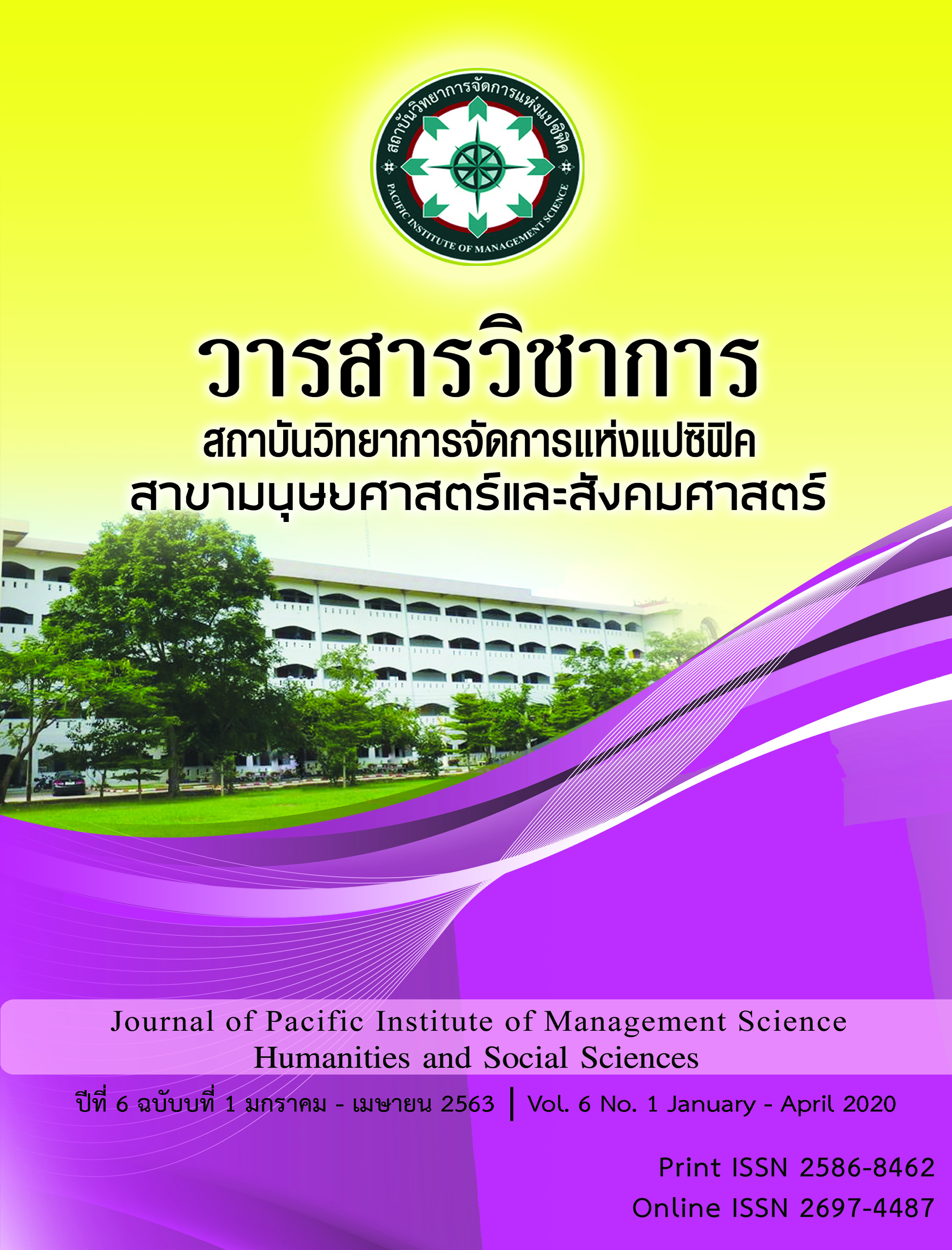COMMUNICATION ART THROUGH DIGITAL MEDIA PLATFORM.
Project on development of the new media platform for art education
Keywords:
Visual arts, Digital media, online exhibitionAbstract
The purposes of this research were aim to study: 1) The behavior of university students’ and the point of view though traditional art exhibition experienced base in Bangkok city area 2) Perception of online visual art exhibition in digital media though "Google Arts and Culture" as a case study 3) Created Communication art knowledge though digital media platform. This research and development methodology by used mixed methodologies of quantitative and qualitative research. Used by the main qualitative research methodology, Key informants was Thirty of university students in visual art major and the research instruments were 1) Questionnaire 2) Interview data were analyzed by content analysis. And in quantitative research population was Three hundred of public opinion sample size focus on art museum in Bangkok city area used sampling method selected by experience of viewers. The research instruments were questionnaire the data were analyzed by using computer software package. the statistics used in data analysis were include the frequency of all data, the mean and standard deviation.
The results were as follows:
1.The viewers have been visited art exhibitions mostly on the grand opening date of the exhibition and participate when appropriate to their own time. The group chooses to attend and have opportunity to meet with the artists Therefore, has interested to attended to variety of activity during the exhibition. The groups recognize the change in communication technology, also had commented that traditional exhibition has value and confirms necessary of existence in terms of exhibition.
2. Base on the Information, it indicates that the used of digital media is necessary in today's communication for individual’s user and organizations to communication in the form of social media. Reason base on cost and budget the use of digital media mostly found for entertainment. The Google Arts and Culture in this case study participation mostly not have an experienced before survey.
3. The group accepted the change in technology and change of social structure, based questionnaire found that students don’t notice the benefits of using digital media in terms of creativity approach. Mostly focus on the use of entertainment, therefore should support researchers for research subject related to digital media. In addition, aim to development of knowledge in technology. Digital media also bring influence to students' decisions. The development of each learner has different way to learning progress. Therefore, it’s importance to changing students’ attitudes by using digital media for creativity of learner along with finding inspiration and motivation. Then there is a change in university students’ behavior to using digital media in creative terms.
References
Gradle (2014). John Dewey and Henry Schaefer-Simmern: The wholeness of artistic activity. p. 71-84 International Journal of education through art. V.10
McLuhan (1947). Theoretical elaborations, ISBN 0-415-32171-9 Volume 2
Karen (2016). Social technologies for online learning: theoretical and contextual issues. Issue 1, p42-53. Vol. 31 www.dx.doi.org
Spina (2016). Discover Art with Google's New App School Library Journal, p22-22. Vol.62 Issue 9
Gwo (2015) Development and effectiveness analysis of a personalized ubiquitous multi device certification tutoring system based on Bloom’s Taxonomy of education objectives. Education Technology & Society, 19(1), 223-236
Eithne (2011). Rethinking museum management by Exploring the Potential of social Tagging Systems in Online Art Museums.pp.49-63. 3rd. International Journal of the Inclusive Museum.
Marler (2012) Information technology change, work complexity and service jobs: a contingent perspective. New Technology, Work & Employment; Jul
, Vol. 27 Issue 2, p133-146, 14p
Morgan (2017). John Dewey in the 21st Century, Journal of inquiry & Action in Education, 9(1), 2017
Downloads
Published
Issue
Section
License
บทความที่ได้รับการตีพิมพ์เป็นลิขสิทธิ์ของ สถาบันวิทยาการจัดการแห่งแปซิฟิค
ข้อความที่ปรากฏในบทความแต่ละเรื่องในวารสารวิชาการเล่มนี้เป็นความคิดเห็นส่วนตัวของผู้เขียนแต่ละท่านไม่เกี่ยวข้องกับสถาบันวิทยาการจัดการแห่งแปซิฟิค และคณาจารย์ท่านอื่นๆในสถาบันฯ แต่อย่างใด ความรับผิดชอบองค์ประกอบทั้งหมดของบทความแต่ละเรื่องเป็นของผู้เขียนแต่ละท่าน หากมีความผิดพลาดใดๆ ผู้เขียนแต่ละท่านจะรับผิดชอบบทความของตนเองแต่ผู้เดียว







